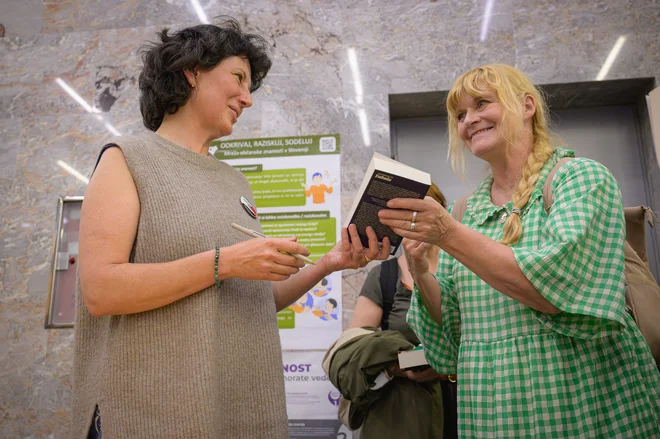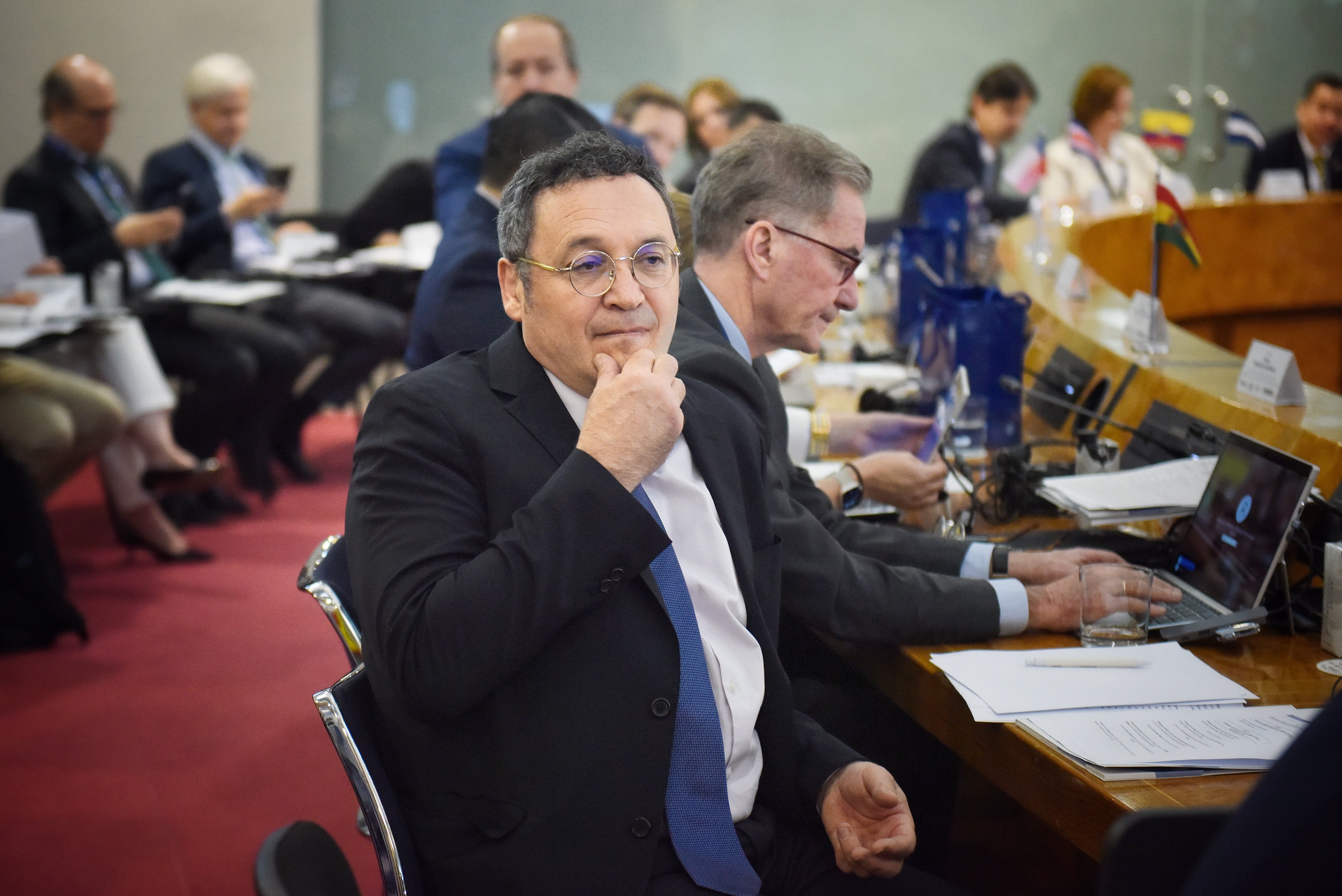660 million fine for Greenpeace in the environmental store is 'a thump for freedom of expression'
:format(webp)/s3/static.nrc.nl/wp-content/uploads/2025/02/14170459/data128052767-1ef092.jpg)
It did not come as a surprise, says lawyer Daniel Simons van Greenpeace, but this statement is « a slap in the face » and « a thump for freedom of expression. »
Simons is referring to The ruling in the court case That energy company Energy Transfer started against Greenpeace. In it, a jury ruled on Wednesday that the environmental organization must pay more than 660 million dollars to Energy Transfer, due to involvement in the large-scale protests against the construction of an oil pipeline in the US state of North Dakota in 2016 and 2017.
In those years, demonstrations took place against the construction of the Dakota Access Pipeline, an almost 1,900 kilometer pipeline that transports Schale oil from North-Dakota to the southern one Illinois. The native Sioux tribe claims that the pipeline goes straight through the area that contains spiritual and culturally important places for members. The tribe feared for the pollution of the Missouririvier, from which it depends on drinking and groundwater.
Donate
The protests were attended by tens of thousands of people. Energy Transfer challenged two American entities of Greenpeace and Greenpeace International, which was located in Amsterdam, in court for « fueling » the protests and demonstrators with a « campaign of misinformation » to the demonstrations. The nine -member jury equalized Energy Transfer and holds Greenpeace responsible for defamation, conspiracy and the cause of physical damage to the pipeline.
In a statement after the ruling, Energy Transfer stated: « The fact that the disruptors have been responsible is a victory for all of us. »
In the run -up to this case, Simons already announced that Greenpeace had supported the protests alone by donating money and things. He said to fear that Greenpeace USA could go bankrupt through this case. The amount awarded is more than fifteen times the annual budget of Greenpeace USA. Greenpeace appeals.
'Atrocities'
Simons already saw the statement coming. « An opinion poll in the district where the jury comes from, already showed that many people in that area were biased and had negative feelings in relation to the protests, » he says. « Fake newspapers were also distributed who reported positively about Energy Transfer and negative about Greenpeace. Research showed that there were indirect money flows from the chairman of the Energy Transfer to the publisher of those newspapers. » Greenpeace therefore had to request several times to move the lawsuit to another district, but without success.
The British newspaper The Guardian revealed earlier That more than half of the selected jury members have ties with the fossil industry, because they work themselves or their immediate family at refineries or oil companies. During the selection of the jury, it turned out that many candidates looked negatively in advance at organizations involved in the protests. They used words such as « chaos », « disruption » and « atrocities » to describe the demonstrations, according to the British newspaper. A final jury member said that he would « stand on the street without fossil fuels.
Read also
Suddenly a flood of claims; Journalists and activists are more often confronted with slapps
Melodate
« The signal that goes out of this, » says Simons, « is that if you criticize an American company, also from Europe, you have to take into account completely unreasonable consequences. » In doing so, he refers to the assigned damage claim, but also to the costs that Greenpeace makes for the defense alone.
Greenpeace is not alone in this criticism. Civil rights lawyers and experts worldwide point out the unprecedented precedent that can go from this. « This is how Greenpeace is held responsible for public support for a demonstration, and has to pay hundreds of millions of dollars for that, » says Jasmijn de Zeeuw, of Free Press Unlimited, who stands up for international freedom of the press and freedom of expression worldwide. « That has a huge chilling effectas we call it. Anyone with bad intentions can come to something to discredit a protest. Who dares to organize a demonstration? «
Experts also point out that this process has all the characteristics of a weakAn Strategic Lawsuit Against Public Partipation. These are lawsuits, brought by private parties, which are intended to silence people or organizations that publicly express themselves in the public interest. These are often journalists, human rights defenders or (climate) activists, who are put under pressure through dragging legal proceedings and with disproportionate financial claims.
« The pinnacle of a Slapp scenario, » calls Thijs Etty, Environmental Law senior teacher at the Amsterdam University College, this Greenpeace case. « And unfortunately not unique. It happens more and more in Europe and certainly in the United States, that fossil companies try to silence environmental organizations in this way. » He also points to the consequences of this statement for the indigenous population. « These people are often already particularly under -represented. They need help and support to be able to stand up for themselves. With the risk of this type of damage claims, helping organizations think twice in the future. »
Case in the Netherlands
The prosecutor in this case is Energy Transfer, one of the largest oil and gas pipeline companies in the United States. Co -founder and billionaire Kelcy Warren donated a lot of money to Donald Trump, a strong supporter of fossil fuels. « Everyone is afraid of these environmental groups and has the fear that if you are fighting back, it might look wrong, » said Warren about Greenpeace« But what they have done to us is wrong and they will pay for it. »
An independent group of observing lawyers, organized in the Trial Monitoring Committeewho followed the entire process carefully, called the course of the process 'very poorly'. They saw « several violations of the judgment » and a jury that was biased in favor of Energy Transfer. One of these lawyers, Marty Garbus, a prominent civil law lawyer, said to The Guardian That in the six decades that he worked as a lawyer « he » never experienced a trial was as unfair as it was against Greenpeace. «
In addition to the appeal, Greenpeace International itself also started a business against Energy Transfer in the Netherlands. In it, Greenpeace tests the Anti-Slapp Directive, which was hired by the European Commission last year and still has to be converted into national legislation. « With that we want to expose that Energy Transfer is abusing legal actions, » says Simons. « This statement may seem far away, because it happens in the United States. But without good protection, the consequences can also reach the Netherlands. »
Read also
Also in the Netherlands (self) censorship threatens through legalization

:format(webp)/s3/static.nrc.nl/taxonomy/4a3ec6c-commentaar-artikelafbeelding-2024.png)
/s3/static.nrc.nl/images/gn4/data133306995-b21914.jpg)
/s3/static.nrc.nl/wp-content/uploads/2025/06/07043854/ANP-426099410.jpg)
/s3/static.nrc.nl/images/gn4/stripped/data133212332-41b949.jpg)




